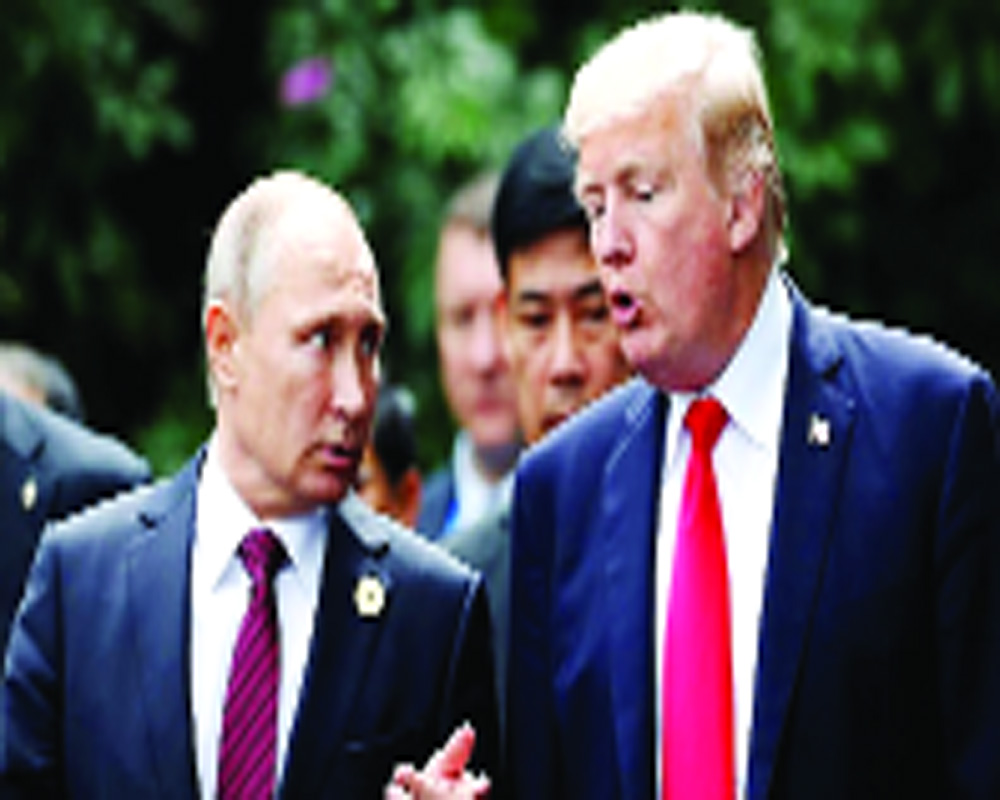Trump and Putin have agreed to negotiate an end to the Ukraine war, a move that could have far-reaching implications for global peace and trade
The US President Trump has had a good relations with Russian President Vladimir Putin and that is now showing in the policy shift of the US. The US stance on the Ukraine war now seems to be taking a U-turn as in all likelihood the US would now go soft on Russia and leave Ukraine in the cold. In a significant geopolitical development, US President Donald Trump and Russian President Vladimir Putin have agreed to initiate negotiations aimed at ending the ongoing conflict in Ukraine. This move marks a notable shift in US foreign policy and has elicited varied reactions globally. President Trump held a 90-minute phone conversation with President Putin, discussing a range of topics, with a primary focus on the situation in Ukraine. Following the call, Trump announced that both Putin and Ukrainian President Volodymyr Zelenskyy had expressed a willingness to pursue peace, leading to the initiation of negotiations to end the war. Trump indicated that these talks would commence immediately, with a potential meeting with Putin in Saudi Arabia in the near future. Ukrainian and European leaders have expressed concerns about being sidelined in the negotiations and the potential for unfavourable concessions.
The decision by the US to engage directly with Russia has raised questions about a potential shift in its support for Ukraine. By recognising Ukraine’s NATO membership as ‘impractical’ and the return of Russian-occupied territories as ‘illusionary,’ the US appears to be moving away from its previous stance of isolating Russia. This shift has led to concerns that Ukraine may be left in a precarious position, especially if European allies are unable to fill the void left by a potential US withdrawal. The announcement of potential peace talks has had immediate effects on global markets. European stock markets have shown optimism, with indices such as Spain’s Ibex 35 reaching new highs. Oil prices have also declined, with Brent crude falling below $75 per barrel, as traders anticipate a relaxation of sanctions on Russian producers. However, uncertainties remain. Analysts caution that while a de-escalation could stabilise energy and food markets, the specifics of any agreement will determine the long-term impacts. The agricultural sector, in particular, is closely monitoring the situation, given that Russia and Ukraine together account for a significant portion of global wheat exports. A resolution to the conflict could ease supply constraints, but logistical challenges and infrastructure damage in Ukraine may continue to pose obstacles. India, as a major importer of commodities like sunflower oil, stands to be affected by these developments. A potential end to the conflict could lead to more predictable trade flows and possibly lower prices for key imports. While Trump- Putin negotiations it offers a glimmer of hope for peace, the potential shifts in alliances and the impacts on global markets warrant careful consideration by all stakeholders involved.
























